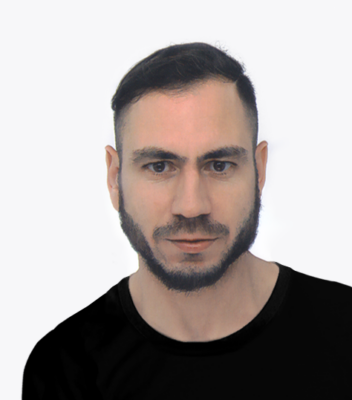Ahead of World Summit AI (11th-12th October 2023, Taets Art & Event Park, Amsterdam), we asked Thomas Lidy, Senior Director, AI & Data Science, Utopia Music, his thoughts on the future of AI.
As an expert in the field, what critical challenges do you believe the AI community needs to address to ensure responsible & and ethical AI deployment?
As an AI community, we have to respect privacy and ownership of data when it comes to training AI systems with said data. We have to find a fair balance between the scale of data needed for current AI systems and data privacy and ownership. We also need to apply careful ethical measures with regards to avoiding bias in AI systems.
How has AI impacted your specific field of expertise, and what transformative changes do you foresee in the near future?
The music industry has seen some tremendous opportunities with AI, but it is also facing some threats. We have to make sure that creators and artists are treated fairly and their original work is respected while enjoying the benefits that new possibilities through AI in creativity can provide the music industry as a whole.

How do you envision AI shaping various industries, and what advice would you give to businesses seeking to integrate AI into their operations?
AI is giving businesses opportunities to scale up in many fields. We are seeing decision making increasingly supported by AI, thanks to the vast and quick amount of data AI can process, learn and infer from. This can save time and money, which is crucial for some companies to survive in the current economic environment. I would therefore strongly recommend companies to embrace AI for its opportunities and new ways to make business but I recommend to always be mindful of its risks or biases as AI does also have its limitations.
In your opinion, what opportunities and challenges does AI present for job markets and workforce development worldwide?
AI can bring many industries to the next level. While in some areas jobs may be automated, we will need a large workforce that builds, prepares, trains, tunes AI systems, verifies them and provides them with accurate data. By that, we are also creating many opportunities for a large number of people. New jobs and industries emerge out of AI applications as well. In the end, we’ll live in a world where people’s jobs and AI-based jobs co-exist, even in creative sectors, so we must adopt the best way to combine the best of both.
Can you share an example of an AI application or project that has personally impressed you, and explain why it stands out?
In the health sector, AI can comb through hundreds of thousands of past cases of diseases, e.g. detect anomalies in MRT images or molecular analyses much faster and at a much higher rate than expert doctors can manually do. This will dramatically help the battle against widespread diseases and advance humanity further on a broader scale. AI shall not replace the doctor but assist them by progressing research at a faster pace and recognizing diseases at a scale humans would not be able to do.
What measures do you believe should be taken to bridge the AI research gap between developed and developing nations to ensure equitable technological progress?
Much of AI research is already being shared on a free and open basis between researchers and top companies in the field. Companies should share more of their learnings from training big internet-scale AI systems and also be more open about the data that was used to train them. A true gap is the sheer need of compute resources to train modern AI systems, which will need funds for developing countries to be able to keep up in this aspect. Sharing compute resources between developed and developing nations shall be a good suggestion.
What 2 people do you admire most in the world of AI in terms of their work?
Alan Turing for laying the groundwork in AI systems and Andrew Ng who has not only conducted groundbreaking AI research but also teaches a new generation of AI researchers in a really fun and accessible way.
What advice would you give to aspiring AI researchers and enthusiasts who want to make a positive impact in the field?
Get some quality training/education in the field of AI, practice a lot by building your own AI systems and don’t lose sight of potential biases and pitfalls when training and setting up an AI system.
If you could solve any global problem in the world with AI, what would it be and why?
I would try to eliminate cancer and other widespread diseases. By providing all the extensive data we have to date from medical research to an AI system that can find out the root causes for those diseases.
What inspired you to participate in this AI summit as a speaker, and what message do you hope to convey to the audience?
I attended World Summit AI for the first time in 2017 and was truly impressed by the large number of highly skilled AI experts I could listen to, meet and exchange ideas with. In 2018, I could participate as a speaker at the startup stage and embrace the opportunities World Summit AI is giving to young AI companies. I believe World Summit AI is truly the biggest AI event in Europe and the perfect opportunity to connect with experts in the field, across manifold application areas and business domains.
Global AI events calendar
World Summit AI
11-12 October 2023
Amsterdam, Netherlands
World Summit AI Americas
24-25 April 2024
Montréal, Canada
Montréal, Canada
Share your content with the World Summit AI community
Got some interesting content you want to share with our community of over 220,000 AI Brains? You can send us anything from a published piece you have written online, white paper, article or interview. Submit it here
.png?width=259&name=WSAI%20Amsterdam%20Orange%20no%20dates%202000x300%20(1).png)
.png?width=263&name=IM_Mothership_assets_LOGO_MINT%20(2).png)

